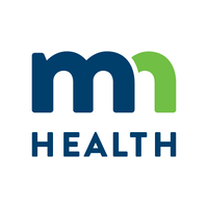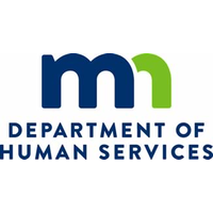YAP COVID Policy:
Currently, masks are not mandatory in the YAP office, but wearing them is always welcome. Our aim is to foster a welcoming and safe environment for everyone. If you would like the staff member you are meeting with to wear a mask, please let us know in advance. This ensures our staff can arrive and stay masked throughout your visit. -- For those who would like them: YAP has free KN95 masks available to use during your visit, or to take home with you!
To meet your needs in a way that works for you, most of our services are also available virtually. Kindly inform us if you would like this option, and we will provide a meeting link.
If you are not feeling well and are experiencing respiratory symptoms (cough, shortness of breath, etc.), and need to meet with YAP staff, please let us know beforehand. We may request to meet only virtually until you have recovered. If you have tested positive for COVID-19, Flu, RSV, or other respiratory infection we ask that you do not come to the office until your symptoms have resolved -AND- you have been feeling better for 24 hours.
Thank you for your help in keeping our community safer!
Update June 2024
Dear Community,
As we reflect on the past two years, we want to extend our deepest gratitude to each of you who has engaged with us in our COVID-19 initiatives. Your support, questions, and feedback have been invaluable in shaping our efforts to serve you better.
Throughout this journey, we've learned so much from you about the needs of our community. From creating essential resources to sharing educational content, we've strived to be responsive and informative. Connecting with 60,000 of you through social media has been a testament to our shared commitment to staying informed and protected.
While our official project is concluding, our dedication to serving you remains unwavering. Free masks will continue to be available at YAP to ensure that everyone has access to essential protection. Our COVID community healing website will remain active. However, will not be regularly updated. Our FAQ page, personal reflection questionnaire, and find out if you are up to date quiz will all remain active, both on our website and through our link tree.
Please know that we're here for you. Whether you have questions about COVID-19, how to find a vaccine near you, or seek clarification on CDC guidelines, we're just a message away. Your well-being continues to be our priority, and we're committed to supporting you through this ongoing journey.
With heartfelt thanks and great care,
The YAP COVID-19 Team
Is COVID still something I should be worried about?
Yes! While vaccines, treatment options, and immunity from previous infections have made COVID-19 less severe and not life-threatening for many, there are many people in our communities who are at risk for severe disease and outcomes, including death from COVID-19. Adults over the age of 65, people who are immunocompromised or have weakened immune systems, current or former smokers, as well as people living with mental health conditions, are all more likely to get very sick from COVID-19. Additionally, everyone is at risk of long COVID or post-COVID conditions. Long-COVID is not well understood but is usually characterized by fatigue, brain fog, and body aches, and it can vary in severity. Long COVID can make it challenging for some to go to work and perform their daily activities. Additionally, new variants continue to become prominent; new variants may evade existing immunity. While COVID-19 still has serious consequences, there are effective steps we can take to protect ourselves, our loved ones, and our communities.
Members of Youth Engaged 4 Change explain why they still care about COVID-19 and why you should too here.
For more information about who is at risk for severe outcomes of COVID-19 please reference the CDC’s People with Certain Medical Conditions page.
Members of Youth Engaged 4 Change explain why they still care about COVID-19 and why you should too here.
For more information about who is at risk for severe outcomes of COVID-19 please reference the CDC’s People with Certain Medical Conditions page.
What is COVID-19?
- COVID-19 is a disease caused by coronavirus germs that pass easily from one person to another.
- It is caused by a type of coronavirus germ not found in people before 2019.
- COVID-19 affects a person’s nose and throat and can sometimes affect a person’s lungs and can make it hard to breathe normally.
- Getting vaccinated is one of the best things you can do to protect yourself from COVID-19. For more information, visit COVID-19 Vaccine.
How does COVID-19 spread?
COVID-19 is spread in three main ways:
- If you are near someone who has COVID-19, you breathe the same air that they do. When they breathe out, tiny germs leave their bodies and go into the air. When you breathe in that same air, the coronavirus germs can go into your body.
- When someone who has COVID-19 sneezes or coughs, the coronavirus germs can land on your eyes, nose, or mouth and get into your body.
- When your hands have coronavirus germs on them, and you touch your mouth, nose, face, or eyes, the germs can get into your body. It is important to wash your hands, even if they look clean, before you touch your mouth, nose, face, or eyes.
A person can also spread the disease if they have no symptoms. Research has shown that around half of all people who get COVID-19 do not have symptoms.
For more information, visit CDC: How COVID-19 Spreads.
What are the Health Effects of COVID-19?
- The virus that causes COVID-19 can affect people in different ways. Some can get very sick, while most have mild or moderate symptoms and get better without going to a clinic or into a hospital. Some have no symptoms. Some people die.
- The long-term health effects are still unknown, but there may be permanent damage to the heart, lungs, or other organs. This is more likely in those who had more severe illness but may also be possible even in those who had mild illness. Learn more at Long COVID.
- Older adults, people who are pregnant, and people of any age who have certain medical conditions, such as diabetes or asthma, might be at higher risk of getting severely sick from COVID-19.
- COVID-19 can also lead to health problems in children. More research is needed to better understand how the virus may cause short and long-term illness.
- COVID-19 can cause stress when people cannot go to work, must be in the hospital, or are separated from family and friends. This stress can lead to other health problems and affect a person’s well-being.
Where to get COVID-19 tests?
Community Testing Locations
MN has in-person community testing locations. Navigators are on site to help with antigen tests and connection with other COVID-19 resources. Find a site close to you on the MDH COVID-19 Community Testing Site.
Enter your Zip Code on the CDC’s No-Cost COVID-19 Testing Site to find a site near you.
Upcoming Community Events Calendar. This calendar contains information regarding upcoming testing and vaccination events hosted by community organizations.
Extended Expiration Dates
The expiration dates on COVID-19 tests have been extended by the FDA. If the box of COVID tests shows an “expired” date, you can check for the updated expiration date on the FDA COVID-10 Diagnostic Testing Website. Scroll to the table of tests. Search for the brand of COVID-19 test that you have received, then in the brad row, click on the extended expiration date. Match the lot number in the table with the lot number on your box of COVID tests. The updated expiration date for your specific COVID tests can be found in the third column.
MN has in-person community testing locations. Navigators are on site to help with antigen tests and connection with other COVID-19 resources. Find a site close to you on the MDH COVID-19 Community Testing Site.
Enter your Zip Code on the CDC’s No-Cost COVID-19 Testing Site to find a site near you.
Upcoming Community Events Calendar. This calendar contains information regarding upcoming testing and vaccination events hosted by community organizations.
Extended Expiration Dates
The expiration dates on COVID-19 tests have been extended by the FDA. If the box of COVID tests shows an “expired” date, you can check for the updated expiration date on the FDA COVID-10 Diagnostic Testing Website. Scroll to the table of tests. Search for the brand of COVID-19 test that you have received, then in the brad row, click on the extended expiration date. Match the lot number in the table with the lot number on your box of COVID tests. The updated expiration date for your specific COVID tests can be found in the third column.
What do I do if I am exposed to COVID-19?
Current recommendations are the same for everyone, independent of vaccine status. Wear a high-quality and well-fitting mask for 10 full days when you are indoors and around others. The 10 days start the day after your last close contact with someone with COVID-19. The day of your last close contact is counted as day zero. The day you can stop wearing a mask is day 11.
Watch for symptoms for 10 full days after your last close contact with someone who has COVID-19. Symptoms can include fever of 100.4 degrees Fahrenheit or greater, cough, sore throat, or shortness of breath. For a complete list of symptoms, visit CDC: Symptoms of COVID-19.
Watch for symptoms for 10 full days after your last close contact with someone who has COVID-19. Symptoms can include fever of 100.4 degrees Fahrenheit or greater, cough, sore throat, or shortness of breath. For a complete list of symptoms, visit CDC: Symptoms of COVID-19.
- If you develop symptoms, stay home and away from others (isolate) and test immediately for COVID-19. Follow isolation recommendations at If You Are Sick or Test Positive: COVID-19.
- If you test positive, stay at home (isolate), and follow recommendations at If You Are Sick or Test Positive: COVID-19.
- If you test negative, continue to wear a high-quality and well-fitting mask when indoors and around others.
What do I do if I test positive for COVID-19?
Get medical care right away if your illness is getting worse (e.g, if you have trouble breathing, new confusion, or inability to wake or stay awake). Symptoms get worse for some people during the second week of illness. Call first if you can and tell them your symptoms.
Seek out treatment: If you are age 50 or older, have a weakened immune system, or have certain medical conditions that increase your risk of severe illness, talk to your healthcare provider right away if you test positive for COVID-19 or have symptoms of COVID-19. They may recommend treatment or have other specific advice for you.
It is important to do this quickly, as antiviral treatment for COVID-19 must be started quickly after symptoms start
It is important to separate yourself from others (isolate) if you feel sick or test positive so you do not spread the COVID-19 virus to others. You should follow the recommendations for isolation even if you are up to date on your COVID-19 vaccines and even if you have had COVID-19 in the past since you can get it more than once.
Seek out treatment: If you are age 50 or older, have a weakened immune system, or have certain medical conditions that increase your risk of severe illness, talk to your healthcare provider right away if you test positive for COVID-19 or have symptoms of COVID-19. They may recommend treatment or have other specific advice for you.
It is important to do this quickly, as antiviral treatment for COVID-19 must be started quickly after symptoms start
It is important to separate yourself from others (isolate) if you feel sick or test positive so you do not spread the COVID-19 virus to others. You should follow the recommendations for isolation even if you are up to date on your COVID-19 vaccines and even if you have had COVID-19 in the past since you can get it more than once.
- Wear a high-quality and well-fitting mask if you must be around others (for example, going to get tested), even in your home.
- Avoid contact with other people in your household and stay in a separate room, if possible.
- Try to make the flow of air in your home better, if possible. Refer to Indoor Air Considerations and CDC: Improving Ventilation in Your Home.
- Tell people who had close contact with you, including people who are vaccinated, that they may have been exposed to COVID-19.
How do I get treatment if I have COVID-19?
People with risk factors for severe illness with COVID-19, such as older age or underlying health conditions, may benefit from COVID-19 antiviral medications. These treatments can help prevent severe illness, hospitalization, and death from COVID-19. Talk to your health care provider right away if you test positive and are at higher risk, as treatments need to be started early to work best. Your health care provider will help determine which COVID-19 medication option is best for you.
- Health systems and clinics
Talk to your healthcare provider or local clinic about COVID-19 medications. Many health systems and clinics across the state offer COVID-19 testing, medical assessment, and prescriptions for antiviral medications. - Test-to-Treat
The federal Test-to-Treat program allows you to get tested (or have your self-test result or test result from another provider assessed), and if positive and treatments are appropriate for you, receive a prescription and have your prescription filled, all at one location. The ASPR: COVID-19 Test to Treat Locator is available to help find participating sites. - Telehealth
Minnesota has a free telehealth test-to-treat program where, if you live in Minnesota and test positive or have symptoms and have had close contact with someone who has COVID-19, you can connect with a physician virtually to see if you should get COVID-19 medications. If you qualify, the provider can issue that prescription to your local pharmacy, or in some areas of the state, the prescription medication can be delivered to your home. This service is available at no cost. Learn more at COVID-19 Telehealth Program. - Cue Health: Get treatment online, by phone, or the Cue Health app. Individuals located in Minnesota who have symptoms of COVID-19 and tested positive or have been exposed to someone with COVID-19 are eligible to receive treatment at no cost,
- The Minnesota Department of Health COVID-19 Public Hotline can help you understand treatment options and direct you to resources. Call 1-833-431-2053, Monday – Friday: 9 a.m. to 7 p.m., Saturday: 10 a.m. to 6 p.m.
Do Medications for COVID-19 treatment interact with medicine to treat or prevent HIV?
For people living with HIV: Some COVID-19 treatments can interact with antiretroviral therapy (ART) used to treat HIV. If you have HIV, let your healthcare provider know before starting COVID-19 treatment. COVID-19 treatments are used to help people who are currently infected and sick with COVID-19 stay out of the hospital. COVID-19 treatment is different from COVID-19 vaccines. COVID-19 vaccines are given to people who are not currently infected with COVID-19 and are used to prevent illness and severe disease.
For people without HIV: There is no evidence that medicine used to treat COVID-19 will interact with pre-exposure prophylaxis (PrEP used to prevent HIV.
For more information, visit the CDC HIV and COVID-19 page
For people without HIV: There is no evidence that medicine used to treat COVID-19 will interact with pre-exposure prophylaxis (PrEP used to prevent HIV.
For more information, visit the CDC HIV and COVID-19 page
How do I protect myself from getting COVID-19 and prevent severe disease?
COVID-19 Vaccines
The COVID-19 vaccine is the most effective tool we have for preventing people from becoming severely ill, needing to be hospitalized, or dying due to a COVID-19 infection. All three vaccine options are exceptional at this!
Vaccination is recommended for all people 6 months of age and older.
Vaccination is recommended for all people 6 months of age and older.
- People 12 years and older who have not previously received any COVID-19 vaccine dose(s) and choose to get Pfizer or Moderna vaccine, should get one dose to be up to date.
- People 12 years and older who have not previously received any COVID-19 vaccine and choose to get Novavax vaccine should get two updated Novavax doses to be up to date.
- People 12 years and older who have received any previous COVID-19 vaccine(s) and choose to get Novavax should get one updated Novavax dose to be up to date.
- Some people may get additional doses of updated 2023-2024 COVID-19 vaccines:
- People who are moderately or severely immunocompromised may get one additional dose of the updated 2023-2024 COVID-19 vaccine two or more months after the last COVID-19 vaccine. They also may receive additional updated 2023-2024 COVID-19 vaccine doses and should talk to their health care provider.
Are COVID-19 vaccines safe for people with HIV?
Yes. COVID-19 vaccines are safe for people with HIV. Learn more about what CDC and other federal agencies are doing to make sure COVID-19 vaccines are safe and effective.
CDC recommends everyone stay up to date with COVID-19 vaccines. People with advanced HIV (including an AIDS diagnosis), or who have HIV and are not on HIV treatment, should follow CDC’s vaccination recommendations for people who are immunocompromised.
For more information, visit the CDC HIV and COVID-19 page
Will COVID-19 vaccines interfere with medicine to prevent or treat HIV?There is no evidence that COVID-19 vaccines interfere with pre-exposure prophylaxis (PrEP) to prevent HIV or with antiretroviral therapy (ART) to treat HIV. Learn more about the different COVID-19 vaccines.
For more information, visit the CDC HIV and COVID-19 page
CDC recommends everyone stay up to date with COVID-19 vaccines. People with advanced HIV (including an AIDS diagnosis), or who have HIV and are not on HIV treatment, should follow CDC’s vaccination recommendations for people who are immunocompromised.
For more information, visit the CDC HIV and COVID-19 page
Will COVID-19 vaccines interfere with medicine to prevent or treat HIV?There is no evidence that COVID-19 vaccines interfere with pre-exposure prophylaxis (PrEP) to prevent HIV or with antiretroviral therapy (ART) to treat HIV. Learn more about the different COVID-19 vaccines.
For more information, visit the CDC HIV and COVID-19 page
Will COVID-19 vaccines interfere with medicine to prevent or treat HIV?
There is no evidence that COVID-19 vaccines interfere with pre-exposure prophylaxis (PrEP) to prevent HIV or with antiretroviral therapy (ART) to treat HIV. Learn more about the different COVID-19 vaccines.
For more information, visit the CDC HIV and COVID-19 page
For more information, visit the CDC HIV and COVID-19 page
Masks
Masks are an easy way to protect yourself from COVID-19 and other respiratory illnesses. Masks can be a great tool when there are higher amounts of COVID cases in your area, or when you are in a crowded place that you have to be close to others.
Masks are available for pickup from the YAP office. If you would like any other or additional PPE, please contact your caseworker.
For more information, visit the Masks: COVID-19 page
Masks are available for pickup from the YAP office. If you would like any other or additional PPE, please contact your caseworker.
For more information, visit the Masks: COVID-19 page
Where can I get a COVID-19 Vaccine?
Vaccines.gov is a vaccine finder that allows you to locate your preferred vaccine close to you.
Enter zipcode to find a vaccine close to you. You are able to select which vaccine you would like (Moderna, Pfizer, Novavax). Can also look for locations that are part of the bridge access program. The Bridge Access Program provides free COVID-19 vaccines to adults without health insurance and adults whose insurance does not cover all COVID-19 vaccine costs. This program will end by December 31, 2024.
Vax Assist
Vax Assist allows you to use your current location or add an address to find a vaccine near you. You are able to choose the vaccine you would like to get pfizer, moderna, novavax or no preference.
Upcoming Community Vaccine Events Calendar These are Vaccine events hosted by community organizations. Double click on the event to find out additional details. Many of these events have financial incentives for the COVID-19 vaccine.
For more information about COVID-19 Vaccines, visit the MDH Vaccine page
Enter zipcode to find a vaccine close to you. You are able to select which vaccine you would like (Moderna, Pfizer, Novavax). Can also look for locations that are part of the bridge access program. The Bridge Access Program provides free COVID-19 vaccines to adults without health insurance and adults whose insurance does not cover all COVID-19 vaccine costs. This program will end by December 31, 2024.
Vax Assist
Vax Assist allows you to use your current location or add an address to find a vaccine near you. You are able to choose the vaccine you would like to get pfizer, moderna, novavax or no preference.
Upcoming Community Vaccine Events Calendar These are Vaccine events hosted by community organizations. Double click on the event to find out additional details. Many of these events have financial incentives for the COVID-19 vaccine.
For more information about COVID-19 Vaccines, visit the MDH Vaccine page
What are the different kinds of COVID-19 Vaccines?
There are currently three COVID-19 vaccines available. Pfizer-BioNTech, Moderna, and Novax. All three are either authorized or licensed by the U.S. Food and Drug Administration (FDA). All three of these vaccines are really effective at preventing severe disease and death.
Nearly all of the ingredients in COVID-19 vaccines are ingredients found in many foods—fats, sugar, and salts. None of the COVID-19 vaccines affect or interact with our DNA and the following are not included in the vaccines:
Pfizer-BioNTech and Moderna COVID-19 vaccines are mRNA vaccines. mRNA vaccines are new and exciting technology! Dr. Kizzmekia Corbett (pictured below) led a team of scientists that developed the Moderna COVID-19 Vaccine.
Novavax COVID-19 vaccine, which is a protein subunit vaccine. Protein subunit vaccines have been used for more than 30 years in the US.
For more information about the different COVID-19 Vaccines can be found on the CDC Overview of COVID-19 Vaccines page
Nearly all of the ingredients in COVID-19 vaccines are ingredients found in many foods—fats, sugar, and salts. None of the COVID-19 vaccines affect or interact with our DNA and the following are not included in the vaccines:
- No preservatives such as thimerosal, mercury, or other preservatives.
- No antibiotics such as sulfonamide or any other antibiotics.
- No medicines or therapeutics such as ivermectin or other medications.
- No tissues such as aborted fetal cells, gelatin, or materials from any animal.
- No food proteins such as eggs or egg products, gluten, peanuts, tree nuts, nut products, or nut byproducts. (COVID-19 vaccines are not manufactured in facilities that produce food products).
- No metals such as iron, nickel, cobalt, titanium, or rare earth alloys. They also do not have any manufactured products like microelectronics, electrodes, carbon nanotubes or other nanostructures, or nanowire semiconductors.
- No latex. The vial stoppers used to hold the vaccine also do not contain latex.
Pfizer-BioNTech and Moderna COVID-19 vaccines are mRNA vaccines. mRNA vaccines are new and exciting technology! Dr. Kizzmekia Corbett (pictured below) led a team of scientists that developed the Moderna COVID-19 Vaccine.
Novavax COVID-19 vaccine, which is a protein subunit vaccine. Protein subunit vaccines have been used for more than 30 years in the US.
For more information about the different COVID-19 Vaccines can be found on the CDC Overview of COVID-19 Vaccines page
What if I am sick but test negative for COVID-19?
Home rapid COVID-19 tests can give false negatives, especially at the start of illness.Therefore, if you are not feeling well, test again in 48 hours. The FDA has additional information about understanding at-home COVID-19 tests.
Whether it's a cold, the flu, COVID or another respiratory virus, you can take steps to help protect others while you aren't feeling well. Avoid others when possible. When you need to be around others, wear a well-fitted high quality mask. When you need to be around others, consider a setting that increases ventilation, such as outdoors, or opening windows
Whether it's a cold, the flu, COVID or another respiratory virus, you can take steps to help protect others while you aren't feeling well. Avoid others when possible. When you need to be around others, wear a well-fitted high quality mask. When you need to be around others, consider a setting that increases ventilation, such as outdoors, or opening windows




